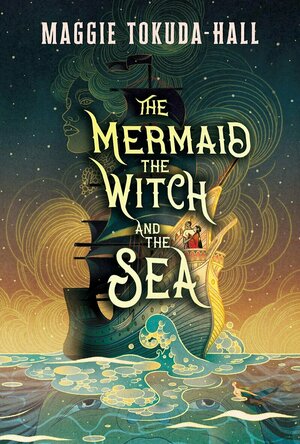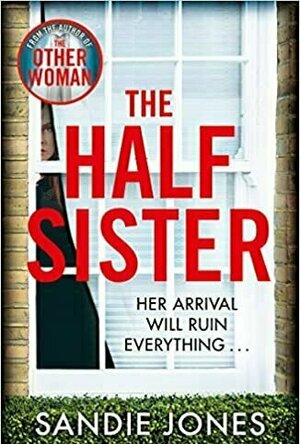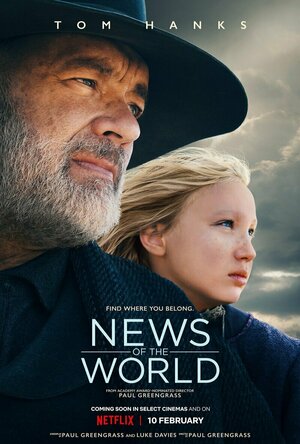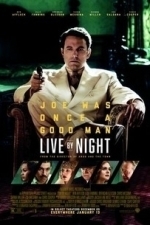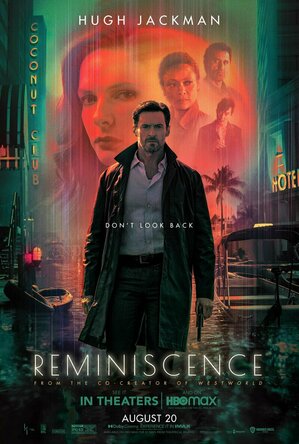Search
Search results
Lottie disney bookworm (1056 KP) rated The Mermaid, the Witch and the Sea in Books
Sep 20, 2020
Thank you to Netgalley and Walker books for providing this ARC in exchange for an honest review.
I chose this book simply based on the synopsis and the gorgeous cover art. I expected it to be a standard YA read, perhaps edging on middle grade but wow was I wrong! This novel contains all the gritty bits of a Pirate’s life and is as far from Neverland pirates and mermaids as you can get.
The Mermaid, the Witch and the Sea centres around the relationship between a high-born, queer, Japanese-inspired noblewoman, Evelyn and a pirate named Florian who is secretly a girl named Flora, disguising themself in order to gain the respect of their crew mates.
Evelyn and Florian instantly capture the heart of the reader. They are such an unlikely match and from completely different worlds but the way that Maggie Tokuda-Hall throws these two characters together and alternates chapters between their perspectives is so compelling. The secret attraction and the pining between Evelyn and Florian can literally be felt through the pages. These two are guaranteed to stay with you long after the book is finished.
In fact, the majority of Tokuda-Hall’s cast of characters are so well developed: we have Rake, the first mate who is a very closed character and keeps his own intentions close to his chest for most of the novel. We have a gender-fluid Pirate Supreme, an imperialist noblewoman who can kick ass and Flora’s brother Alfie, a tortured soul whose traumatic past is alluded to often.
The portrayal of mermaids in the novel is nothing short of inspired: hunted and captured for the properties their blood possesses, mermaids are quite ugly when imprisoned by pirates. These mythical creatures that are renowned for their beauty are only conventionally beautiful in the presence of their loving mother: The Sea. The Sea in turn will do whatever she can to protect her children, and will always reward those who help.
The other pirates are, as you would expect, a group of shady characters but they do not fade into the background at all. Tokuda-Hall reveals right from the beginning the true intentions of this crew and it creates an underlying tension throughout the whole voyage upon The Dove. The twists, secrets and revelations onboard that ship are captivating and create a page-turning first half of the book.
I will say that during the middle of the book, mainly during “The Witch” section, the pace slowed dramatically and it just didn’t flow as much.
I almost wanted more treachery and more suspense from the witch, more struggle by Evelyn and, dare I say, more pining from Evelyn and Florian. Their relationship up to this point had been so intense and slow burning that it almost seemed to cool a little.
I also feel that not quite enough was made of Evelyn’s discovery about the real reason behind her voyage. It was almost a convenient way for that side of her story to be resolved. Similarly, with Florian/Flora; their evolution from Pirate to Witch seemed quite acceptable and tame.
These factors, in my opinion, affected the ending of the novel where everything seemed quite rushed in its efforts to tie up all loose ends. Please don’t misunderstand, I LOVED the ending and how Evelyn and Flora/Florian finished their journey. I even shed a few tears. However, it was the lead up to this that just seemed too convenient and too quick.
Overall this is a wonderfully dark pirate novel that instantly creates a world full of magic and wonder whilst tackling the issues of identity, colonialism, homophobia, poverty and rape. A world where gender-fluid and queer characters fight against injustice alongside endangered mermaids and the Sea is to be respected almost as a deity.
I cannot believe that this is merely Maggie Tokuda-Hall’s debut novel! I cannot wait to see where she takes us next!
I chose this book simply based on the synopsis and the gorgeous cover art. I expected it to be a standard YA read, perhaps edging on middle grade but wow was I wrong! This novel contains all the gritty bits of a Pirate’s life and is as far from Neverland pirates and mermaids as you can get.
The Mermaid, the Witch and the Sea centres around the relationship between a high-born, queer, Japanese-inspired noblewoman, Evelyn and a pirate named Florian who is secretly a girl named Flora, disguising themself in order to gain the respect of their crew mates.
Evelyn and Florian instantly capture the heart of the reader. They are such an unlikely match and from completely different worlds but the way that Maggie Tokuda-Hall throws these two characters together and alternates chapters between their perspectives is so compelling. The secret attraction and the pining between Evelyn and Florian can literally be felt through the pages. These two are guaranteed to stay with you long after the book is finished.
In fact, the majority of Tokuda-Hall’s cast of characters are so well developed: we have Rake, the first mate who is a very closed character and keeps his own intentions close to his chest for most of the novel. We have a gender-fluid Pirate Supreme, an imperialist noblewoman who can kick ass and Flora’s brother Alfie, a tortured soul whose traumatic past is alluded to often.
The portrayal of mermaids in the novel is nothing short of inspired: hunted and captured for the properties their blood possesses, mermaids are quite ugly when imprisoned by pirates. These mythical creatures that are renowned for their beauty are only conventionally beautiful in the presence of their loving mother: The Sea. The Sea in turn will do whatever she can to protect her children, and will always reward those who help.
The other pirates are, as you would expect, a group of shady characters but they do not fade into the background at all. Tokuda-Hall reveals right from the beginning the true intentions of this crew and it creates an underlying tension throughout the whole voyage upon The Dove. The twists, secrets and revelations onboard that ship are captivating and create a page-turning first half of the book.
I will say that during the middle of the book, mainly during “The Witch” section, the pace slowed dramatically and it just didn’t flow as much.
I almost wanted more treachery and more suspense from the witch, more struggle by Evelyn and, dare I say, more pining from Evelyn and Florian. Their relationship up to this point had been so intense and slow burning that it almost seemed to cool a little.
I also feel that not quite enough was made of Evelyn’s discovery about the real reason behind her voyage. It was almost a convenient way for that side of her story to be resolved. Similarly, with Florian/Flora; their evolution from Pirate to Witch seemed quite acceptable and tame.
These factors, in my opinion, affected the ending of the novel where everything seemed quite rushed in its efforts to tie up all loose ends. Please don’t misunderstand, I LOVED the ending and how Evelyn and Flora/Florian finished their journey. I even shed a few tears. However, it was the lead up to this that just seemed too convenient and too quick.
Overall this is a wonderfully dark pirate novel that instantly creates a world full of magic and wonder whilst tackling the issues of identity, colonialism, homophobia, poverty and rape. A world where gender-fluid and queer characters fight against injustice alongside endangered mermaids and the Sea is to be respected almost as a deity.
I cannot believe that this is merely Maggie Tokuda-Hall’s debut novel! I cannot wait to see where she takes us next!
Ivana A. | Diary of Difference (1171 KP) rated The Half Sister in Books
Oct 5, 2020
I am so happy to have the opportunity to be part of the blog tour for The Half Sister by Sandie Jones. Thank you to the team at Pan Macmillan, for sending me a copy in exchange for an honest review.
About The Author:
I have heard a lot about Sandie Jones, but I haven’t read any books by her prior to The Half Sister. Sandie Jones has worked as a freelance journalist for over twenty years, and has written for publications including the Sunday Times, Woman’s Weekly and the Daily Mail. She lives in London with her husband and three children. The Other Woman is her debut novel.
Synopsis:
I need to mention that the original synopsis of the book may be a bit misleading. Lauren and Kate are two sisters, but they don’t get along too well and their relationship is complicated.
Kate is a reporter, married to lovely Mark, and going through many rounds of IVF treatment, hoping to start a family. Kate had a very close relationship with her father until the day he died, but was never too close to her sister Lauren and their mother, Rose.
Lauren, on the other hand, is a full time mom of three, with a demanding and overprotective husband. She is very close to her mum, and had a complicated relationship with her father, never forgiving him for understanding her in the past.
One day, while Kate, Lauren and their mum are having their usual Sunday roast, a woman knocks on their door and drops a bombshell. Jess claims to be their half-sister.
This allegation is met with denial - how could she be a secret daughter of their father. Their mother is devastated, Lauren is not surprised, and Kate doesn’t believe Jess at all. But as more secrets start to unravel, no one can know who to trust anymore…
My Thoughts:
I loved the idea of this book, even though I am not too big of a fan of domestic mysteries and drama. My impressions were that this would’ve been more psychological thriller, but I was in the wrong. However, despite this, the book is really surprisingly well-written and kept me on my toes until the very end.
The lives of Lauren and Kate in particular were very well written. I can imagine people being able to easily relate to their struggles. The difference between the two sisters is like night and day. I loved the fact that this book was not sugar coating this, and it didn’t end it with a “happily ever after”. Instead, it ended with “we know we are different, and we are working to fix our relationship in its natural course”.
The story about how Jess comes into their lives, and the whole DNA situation was extremely not believable. As well as the fact that doing another DNA test at the beginning of the novel would have solved all assumptions, rather than people believing hearsay and creating more drama. However, I am also aware that drama was needed to keep the story going, so I can’t hold a grudge.
The ending was predictable half-way through the book. Some scenes are completely unnecessary and make the story more complicated. There are many triggering moments in this book. Cheating, domestic violence and abuse, both physical and emotional and abortion. This book may also trigger people that have had difficult relationships with their parents and/or siblings.<br/><br/>Even though not a favorite thriller, I enjoyed this book and recommend it to everyone that loves domestic thrillers. It is a fast-paced read, and the plot twists are juicy.
About The Author:
I have heard a lot about Sandie Jones, but I haven’t read any books by her prior to The Half Sister. Sandie Jones has worked as a freelance journalist for over twenty years, and has written for publications including the Sunday Times, Woman’s Weekly and the Daily Mail. She lives in London with her husband and three children. The Other Woman is her debut novel.
Synopsis:
I need to mention that the original synopsis of the book may be a bit misleading. Lauren and Kate are two sisters, but they don’t get along too well and their relationship is complicated.
Kate is a reporter, married to lovely Mark, and going through many rounds of IVF treatment, hoping to start a family. Kate had a very close relationship with her father until the day he died, but was never too close to her sister Lauren and their mother, Rose.
Lauren, on the other hand, is a full time mom of three, with a demanding and overprotective husband. She is very close to her mum, and had a complicated relationship with her father, never forgiving him for understanding her in the past.
One day, while Kate, Lauren and their mum are having their usual Sunday roast, a woman knocks on their door and drops a bombshell. Jess claims to be their half-sister.
This allegation is met with denial - how could she be a secret daughter of their father. Their mother is devastated, Lauren is not surprised, and Kate doesn’t believe Jess at all. But as more secrets start to unravel, no one can know who to trust anymore…
My Thoughts:
I loved the idea of this book, even though I am not too big of a fan of domestic mysteries and drama. My impressions were that this would’ve been more psychological thriller, but I was in the wrong. However, despite this, the book is really surprisingly well-written and kept me on my toes until the very end.
The lives of Lauren and Kate in particular were very well written. I can imagine people being able to easily relate to their struggles. The difference between the two sisters is like night and day. I loved the fact that this book was not sugar coating this, and it didn’t end it with a “happily ever after”. Instead, it ended with “we know we are different, and we are working to fix our relationship in its natural course”.
The story about how Jess comes into their lives, and the whole DNA situation was extremely not believable. As well as the fact that doing another DNA test at the beginning of the novel would have solved all assumptions, rather than people believing hearsay and creating more drama. However, I am also aware that drama was needed to keep the story going, so I can’t hold a grudge.
The ending was predictable half-way through the book. Some scenes are completely unnecessary and make the story more complicated. There are many triggering moments in this book. Cheating, domestic violence and abuse, both physical and emotional and abortion. This book may also trigger people that have had difficult relationships with their parents and/or siblings.<br/><br/>Even though not a favorite thriller, I enjoyed this book and recommend it to everyone that loves domestic thrillers. It is a fast-paced read, and the plot twists are juicy.
BankofMarquis (1832 KP) rated News of the World (2020) in Movies
Jan 17, 2021
Strongly Acted and Directed
Pound for pound, Tom Hanks is the best actor of this generation. From his big screen debut in SPLASH to his Oscar Nominated turn in BIG to his back-to-back Oscar wins for PHILADELPHIA and FORREST GUMP to more recent works like SULLY and THE POST, Hanks’ “everyman goodness” quality shines through the screen and makes him a screen presence that cannot be ignored.
And in his latest effort, the Paul Greengrass Directed NEWS OF THE WORLD, Hanks uses every molecule of his screen presence to keep the audience’s attention in a slow-paced, moody character study.
Based on the novel by Paulette Jiles, NEWS OF THE WORLD takes place in a post-Civil War Texas where a former Confederate Captain makes a living by going from town to town and reading the news to them. A chance encounter with a twice orphaned young girl alters the lives of both of them.
Writer/Director Paul Greengrass is most known for quick-cut action films like the BOURNE series or the criminally underrated GREEN ROOM, so he would seem - at first glance - as an unusual choice to adapt and direct this character study, but look further at Greengrass’ resume and you will find - in films such as UNITED 93 and CAPTAIN PHILLIPS - an ability to tell a story that is driven more by character than by action.
And this combination of Director and Actor works well for NEWS OF THE WORLD is a languidly paced piece that has a somber mood and look but Greengrass avoids the temptation of lingering on scenes or pictures too long (and there are some wonderful images captured by Greengrass and Cinemotgrapher Darius Wolski) to tell a story of a man who needs to rediscover and remake himself.
And Hanks is more than equal to the task of bringing the pragmatic, introspective Captain Jefferson Kyle Kidd character to life in a way that makes him intriguing and not boring. Hanks ability to show inherent decency in a look or a gesture is the stuff of legends and when he speaks, you listen. Which is good for Hanks is in every scene in this film and his performance needs to strongly capture the audience for this film to work - and he is more than equal to this task - so strong is Hanks in this role that I would not be surprised if there is another Oscar nomination in Tom’s near future.
Newcomer Helena Zegal is “just fine” in the other main role in this film - the young girl that Captain Kidd encounters, Johnna. This young girl is silent and shut down for most of the film and Zegal performs “shut down and silent” well. Also along for brief cameo roles of characters that Captain Kidd encounters on his journey is a bevy of wonderfully cast character actors that include Mare Winnigham, Ray McKinnon, Bill Camp and the always interesting to watch Elizabeth Marvel.
As is often the case in these sorts of films, the music/soundtrack becomes a vital part of the story that unfolds and 8 time Oscar nominated composer James Newton Howard (THE PRINCE OF TIDES) is more than up to the task. The music is another character in this film and helps set the mood along the journey.
But make no mistake, this is Hanks’ film - and he is VERY good in this. Like MIDNIGHT SKY (reviewed last month), this movie will not be for everyone - and many, many folks are going to tell me that they checked this movie out on my recommendation and were bored by it. But…if you click into the mood, motion and energy of what Greengrass is showing, you will be rewarded with an emotionally rich and complex character study.
Letter Grade: A-
8 stars (out of 10) - and you can take that to the Bank (ofMarquis)
And in his latest effort, the Paul Greengrass Directed NEWS OF THE WORLD, Hanks uses every molecule of his screen presence to keep the audience’s attention in a slow-paced, moody character study.
Based on the novel by Paulette Jiles, NEWS OF THE WORLD takes place in a post-Civil War Texas where a former Confederate Captain makes a living by going from town to town and reading the news to them. A chance encounter with a twice orphaned young girl alters the lives of both of them.
Writer/Director Paul Greengrass is most known for quick-cut action films like the BOURNE series or the criminally underrated GREEN ROOM, so he would seem - at first glance - as an unusual choice to adapt and direct this character study, but look further at Greengrass’ resume and you will find - in films such as UNITED 93 and CAPTAIN PHILLIPS - an ability to tell a story that is driven more by character than by action.
And this combination of Director and Actor works well for NEWS OF THE WORLD is a languidly paced piece that has a somber mood and look but Greengrass avoids the temptation of lingering on scenes or pictures too long (and there are some wonderful images captured by Greengrass and Cinemotgrapher Darius Wolski) to tell a story of a man who needs to rediscover and remake himself.
And Hanks is more than equal to the task of bringing the pragmatic, introspective Captain Jefferson Kyle Kidd character to life in a way that makes him intriguing and not boring. Hanks ability to show inherent decency in a look or a gesture is the stuff of legends and when he speaks, you listen. Which is good for Hanks is in every scene in this film and his performance needs to strongly capture the audience for this film to work - and he is more than equal to this task - so strong is Hanks in this role that I would not be surprised if there is another Oscar nomination in Tom’s near future.
Newcomer Helena Zegal is “just fine” in the other main role in this film - the young girl that Captain Kidd encounters, Johnna. This young girl is silent and shut down for most of the film and Zegal performs “shut down and silent” well. Also along for brief cameo roles of characters that Captain Kidd encounters on his journey is a bevy of wonderfully cast character actors that include Mare Winnigham, Ray McKinnon, Bill Camp and the always interesting to watch Elizabeth Marvel.
As is often the case in these sorts of films, the music/soundtrack becomes a vital part of the story that unfolds and 8 time Oscar nominated composer James Newton Howard (THE PRINCE OF TIDES) is more than up to the task. The music is another character in this film and helps set the mood along the journey.
But make no mistake, this is Hanks’ film - and he is VERY good in this. Like MIDNIGHT SKY (reviewed last month), this movie will not be for everyone - and many, many folks are going to tell me that they checked this movie out on my recommendation and were bored by it. But…if you click into the mood, motion and energy of what Greengrass is showing, you will be rewarded with an emotionally rich and complex character study.
Letter Grade: A-
8 stars (out of 10) - and you can take that to the Bank (ofMarquis)
Gareth von Kallenbach (980 KP) rated Live By Night (2017) in Movies
Jul 12, 2019
I’m a sucker for a Prohibition-set yarn. It’s a fascinating period in history and typically yields excellent filmmaking with gritty, no-nonsense performances, gorgeous production design and hard-boiled action. It was De Palma’s The Untouchables that hooked me. Some would call it a guilty pleasure; and sure, Morricone’s score is a little over-the-top, De Niro is more caricature than character actor as Al Capone and I’m not going to argue that Connery’s Oscar was a “sympathy vote”, but it’s got everything I mentioned above in spades and for me it’ll always be the high benchmark of the Prohibition era gangster epic. Ben Affleck’s fourth turn as director has done nothing to change my position on that.
Live by Night is an uninspired mess, from voice-over laden start to disastrously predictable end, bringing nothing new or exciting to the table. Beat for beat, its weak script moves from one sigh-inducing cliché to another, reaching clumsily for moments of high emotion that ring hollow and false. If anyone needs any further proof that Matt Damon did all the heavy lifting on the script for Good Will Hunting, they need look no further. It feels wrong to come down so hard on Affleck after his back-to-back successes as a director, but this is more akin to the first work of a blundering novice, and also certainly not what we’ve come to expect of a Dennis Lehane adaptation (see Mystic River, Shutter Island and Affleck’s own incredible directorial debut, Gone Baby Gone). His decision to wear so many hats on this project, producing, directing, sole screenwriter and lead actor, has to be the reason for this stumble. The script desperately needed another set of eyes and the part of Joe Coughlin was clearly written for someone younger and more capable of performing with the subtlety needed to play someone who has to traverse the number of moral dilemmas he’s faced with. Hopefully, this inevitable failure will be what convinces Affleck that his place should be behind the camera directing other people’s scripts and guiding other people’s performances.
Speaking of the performances, there is a massive curve in this collection of acting that swings wildly from the cartoonish to the nuanced. To start with, we have Matthew Maher as a KKK member out for his cut and Robert Glenister as an Irish mob boss, both of whom are supposed to be playing dangerous and threatening but can’t do any better than laughable and two-dimensional. Then there’s Chris Messina and Affleck himself as the hoods on the rise, their chemistry is ill-advised at best as they both seem to think they’re in a buddy comedy as opposed to a serious piece of gangster melodrama A favorite of mine, Brendan Gleeson, sadly leaves the screen within the first twenty minutes and that left me with only the inimitable Chris Cooper to look forward to. The subplot involving him and Elle Fanning, as his born-again daughter speaking out against Coughlin’s sinful ways is not without problems of its own, but at least they sell it. That should be no surprise on Cooper’s part, but now between this and The Neon Demon last summer; Fanning is firmly on my radar as one to watch. My hope was that we were going to get some tremendous battle of wills between her and Affleck’s character akin to Paul Dano and Daniel Day-Lewis’ conflict in There Will Be Blood, but that was definitely asking too much. Fanning’s role, like Gleeson’s, is unfortunately cut short just as it gets good.
I guess The Untouchables is starting to sound less like a guilty pleasure and more like a masterpiece when compared to this regrettable misfire.
Live by Night is an uninspired mess, from voice-over laden start to disastrously predictable end, bringing nothing new or exciting to the table. Beat for beat, its weak script moves from one sigh-inducing cliché to another, reaching clumsily for moments of high emotion that ring hollow and false. If anyone needs any further proof that Matt Damon did all the heavy lifting on the script for Good Will Hunting, they need look no further. It feels wrong to come down so hard on Affleck after his back-to-back successes as a director, but this is more akin to the first work of a blundering novice, and also certainly not what we’ve come to expect of a Dennis Lehane adaptation (see Mystic River, Shutter Island and Affleck’s own incredible directorial debut, Gone Baby Gone). His decision to wear so many hats on this project, producing, directing, sole screenwriter and lead actor, has to be the reason for this stumble. The script desperately needed another set of eyes and the part of Joe Coughlin was clearly written for someone younger and more capable of performing with the subtlety needed to play someone who has to traverse the number of moral dilemmas he’s faced with. Hopefully, this inevitable failure will be what convinces Affleck that his place should be behind the camera directing other people’s scripts and guiding other people’s performances.
Speaking of the performances, there is a massive curve in this collection of acting that swings wildly from the cartoonish to the nuanced. To start with, we have Matthew Maher as a KKK member out for his cut and Robert Glenister as an Irish mob boss, both of whom are supposed to be playing dangerous and threatening but can’t do any better than laughable and two-dimensional. Then there’s Chris Messina and Affleck himself as the hoods on the rise, their chemistry is ill-advised at best as they both seem to think they’re in a buddy comedy as opposed to a serious piece of gangster melodrama A favorite of mine, Brendan Gleeson, sadly leaves the screen within the first twenty minutes and that left me with only the inimitable Chris Cooper to look forward to. The subplot involving him and Elle Fanning, as his born-again daughter speaking out against Coughlin’s sinful ways is not without problems of its own, but at least they sell it. That should be no surprise on Cooper’s part, but now between this and The Neon Demon last summer; Fanning is firmly on my radar as one to watch. My hope was that we were going to get some tremendous battle of wills between her and Affleck’s character akin to Paul Dano and Daniel Day-Lewis’ conflict in There Will Be Blood, but that was definitely asking too much. Fanning’s role, like Gleeson’s, is unfortunately cut short just as it gets good.
I guess The Untouchables is starting to sound less like a guilty pleasure and more like a masterpiece when compared to this regrettable misfire.

Rannvijay Singha Official App
Music and Entertainment
App
Follow Rannvijay Singha through his Official App smarturl.it/RannvijaySingha. Download the free...

Typhoons by Royal Blood
Album
After two UK #1 albums, 2 million album sales and an array of international acclaim, you might’ve...

The Weather Station by The Weather Station
Album Watch
On her fourth (and tellingly self-titled) album as The Weather Station, Tamara Lindeman reinvents,...
alternative folk rock
BankofMarquis (1832 KP) rated Reminiscence (2021) in Movies
Aug 24, 2021
Needed a better Director - like one of the Nolan boys
Christopher Nolan is one of the greatest Directors of our time usually making films that have an attribute of time in them. His brother, Jonathan Nolan, has had a hand in most of his brother’s terrific works as well as the creative force behind such “trippy” TV series as PERSON OF INTEREST and the recent revival of WESTWORLD. In both of these TV Series, Jonathan Nolan was assisted by his wife, Lisa Joy.
Lisa Joy has written and directed her own “trippy, play with time” film, REMINISCENCE that has quite a few of the hallmarks of a Christopher (or Jonathan) Nolan film - but it also has one very unsettling aspect to it - it plays like a twice over copy of something else.
REMINISCENCE is a classic neo-noir with our hero being smitten by the femme fatale which draws him into her world, where murder, criminal activities and low-lifes run rampant all with a downbeat tone.
This sounds like a terrific premise for a Christopher Nolan film, unfortunately, in the hands of Lisa Joy, it is like watching a local community theater production of a Broadway musical.
The first 1/3 of this film is one long, laborious setup for the tragedy that will unfold and it is told at an uninteresting snail’s pace. Reminiscence picks up a bit in the middle with a pretty good action scene - and plot twist - before squandering this momentum with mediocrity at the end.
Joy’s script - which was on Hollywood’s infamous “blacklist’ of scripts for many, many years (a list of screenplays that are generally praised, but for some reason or another have not been produced), is at the core of the problem. The dialogue is not very interesting and dripping with heavy film noire clichés. She does not follow the Hollywood doctrine of “show, don’t tell”. She TELLS the audience much, much more than is needed and never really gives the audience any credit for figuring things out for themselves.
For example, there is a “dirty cop” that is central to the plot (there always is in this type of film). So, how do the other characters in the film address him? “You’re the dirty cop…”
I’d laugh if I wasn’t so bored.
What DOES work in this film is the acting of Hugh Jackman (as our hero), Rebecca Ferguson (as the femme fatale) and - especially - Thandie Newton as the “Gal Friday” of Jackman’s. Someone needs to give this talented actress a true showcase of her talents.
Someone also needs to give good ol’ Cliff Curtis a vehicle for his talents - he is one of the most misused good performers in Hollywood and he is misused in this film as well.
And…don’t get me started on the special effects. If you are going to make a trippy, sci-fi, futuristic neo-noire thriller, you probably shouldn’t cut the corner on the special effects, but this film does that, amazingly.
But…with a good Director at the helm there is enough “good enough” here (especially in the acting) that you should be able to pull something decent out of it.
But…Joy is making her theatrical film directing debut - exactly the type of director that this film does not need. What this film needed wasn’t a rookie director like Joy, it needed a Nolan - either Jonathan or (preferably) Christopher to make this work. But, one will have to be contented with a copy of a copy.
And that’s just not good enough.
Letter Grade: C+ (the performances of the leads almost salvage things.
5 stars (out of 10) - and you can take that to the Bank(ofMarquis)
Lisa Joy has written and directed her own “trippy, play with time” film, REMINISCENCE that has quite a few of the hallmarks of a Christopher (or Jonathan) Nolan film - but it also has one very unsettling aspect to it - it plays like a twice over copy of something else.
REMINISCENCE is a classic neo-noir with our hero being smitten by the femme fatale which draws him into her world, where murder, criminal activities and low-lifes run rampant all with a downbeat tone.
This sounds like a terrific premise for a Christopher Nolan film, unfortunately, in the hands of Lisa Joy, it is like watching a local community theater production of a Broadway musical.
The first 1/3 of this film is one long, laborious setup for the tragedy that will unfold and it is told at an uninteresting snail’s pace. Reminiscence picks up a bit in the middle with a pretty good action scene - and plot twist - before squandering this momentum with mediocrity at the end.
Joy’s script - which was on Hollywood’s infamous “blacklist’ of scripts for many, many years (a list of screenplays that are generally praised, but for some reason or another have not been produced), is at the core of the problem. The dialogue is not very interesting and dripping with heavy film noire clichés. She does not follow the Hollywood doctrine of “show, don’t tell”. She TELLS the audience much, much more than is needed and never really gives the audience any credit for figuring things out for themselves.
For example, there is a “dirty cop” that is central to the plot (there always is in this type of film). So, how do the other characters in the film address him? “You’re the dirty cop…”
I’d laugh if I wasn’t so bored.
What DOES work in this film is the acting of Hugh Jackman (as our hero), Rebecca Ferguson (as the femme fatale) and - especially - Thandie Newton as the “Gal Friday” of Jackman’s. Someone needs to give this talented actress a true showcase of her talents.
Someone also needs to give good ol’ Cliff Curtis a vehicle for his talents - he is one of the most misused good performers in Hollywood and he is misused in this film as well.
And…don’t get me started on the special effects. If you are going to make a trippy, sci-fi, futuristic neo-noire thriller, you probably shouldn’t cut the corner on the special effects, but this film does that, amazingly.
But…with a good Director at the helm there is enough “good enough” here (especially in the acting) that you should be able to pull something decent out of it.
But…Joy is making her theatrical film directing debut - exactly the type of director that this film does not need. What this film needed wasn’t a rookie director like Joy, it needed a Nolan - either Jonathan or (preferably) Christopher to make this work. But, one will have to be contented with a copy of a copy.
And that’s just not good enough.
Letter Grade: C+ (the performances of the leads almost salvage things.
5 stars (out of 10) - and you can take that to the Bank(ofMarquis)
Bob Mann (459 KP) rated People Just Do Nothing: Big in Japan (2021) in Movies
Aug 20, 2021
Good jokes, most of which land (1 more)
Enough David Brent/Partridge moments to make you cringe
As a PJDN virgin, I still laughed a lot!
It’s brave then that such a relatively niche UK TV show should have a go at ‘jumping the shark’ onto the big screen. Would fans like it? And, just as importantly, would newcomers to the characters, like me, be able to enjoy the film as a standalone entity? The answer to the last question is a qualified “yes”.
Positives:
- It well-surpasses the “6 laugh test” for a comedy. There are some scenes that I found extremely funny, with others that rated highly for me on the David Brent / Alan Partridge scale of cringiness.
- I’ve seen comment that the story is "silly" and “unbelievable”. But having experienced the crazy clash between English and Japanese culture first hand, it strikes me as very true to form! The way in which the Japanese music execs try to stylise the ground as a ‘boy band’ (“Bang Boys”!), which Grindah greedily goes along with, is a nice satire on the music industry asserting its brand over musician’s art.
- A subplot of a love story beween the inept Steves and the cute Japanese translator Ishika (Ayumi Itô) is nicely done and strangely touching.
- The good news is that you don’t need any previous experience of the characters to get fun out of the movie: you can jump right in. That being said though, I’m sure fans of the series will get more out of this than I did.
Negatives:
- While the ending was uplifting, I was itching to know what fallout (or success?) there was from the event we witnessed. Perhaps if its a box office success (unlikely I think!) then there will be a sequel.
Summary Thoughts on “People Just Do Nothing: Big in Japan”: IMDB is littered with disastrous reviews of British TV shows that have tried and failed to make the leap from the small screen to the big screen. “On the Buses”; “Are You Being Served?”; “Steptoe and Son”; “Please Sir”; “Love Thy Neighbour” – the list is endless. They are mostly all horribly unfunny. Even the great “Morecambe and Wise”, although showing occasional moments of brilliance, struggled to fully land any of their three big-screen outings.
The ‘go-to’ of many of these efforts was to “go abroad”: take the well-loved characters and put them into a ‘bigger’ and stranger pool. So “People Just Do Nothing: Big in Japan” was following a well-trodden path here. It’s a tribute to the team and their TV-series director Jack Clough, in his feature debut, that they pretty much pull it off.
I’d like to agree with Kevin Maher of “The Times” that the movie is full of “Japanese stereotypes… drunken businessmen, passive giggling women etc”. But having travelled extensively on business in Japan, it seems pretty close to the mark with its observations to me! More importantly, the film never seems to be particularly derogatory or disrespectful of the culture. For example, they take their shoes off too much!
Key to its box office success will be whether or not it can attract an audience outside of its niche TV fan-bases. As a member of that sub-group, I really wasn’t expecting to enjoy this one, but I actually did. It was good fun, and if you want a good laugh at the cinema – a pretty rare thing – then I’d recommend this one, even if – like me – you haven’t seen the original TV show.
(For the full graphical review, please check out onemannsmovies on the web, Facebook and Tiktok. Thanks!)
Positives:
- It well-surpasses the “6 laugh test” for a comedy. There are some scenes that I found extremely funny, with others that rated highly for me on the David Brent / Alan Partridge scale of cringiness.
- I’ve seen comment that the story is "silly" and “unbelievable”. But having experienced the crazy clash between English and Japanese culture first hand, it strikes me as very true to form! The way in which the Japanese music execs try to stylise the ground as a ‘boy band’ (“Bang Boys”!), which Grindah greedily goes along with, is a nice satire on the music industry asserting its brand over musician’s art.
- A subplot of a love story beween the inept Steves and the cute Japanese translator Ishika (Ayumi Itô) is nicely done and strangely touching.
- The good news is that you don’t need any previous experience of the characters to get fun out of the movie: you can jump right in. That being said though, I’m sure fans of the series will get more out of this than I did.
Negatives:
- While the ending was uplifting, I was itching to know what fallout (or success?) there was from the event we witnessed. Perhaps if its a box office success (unlikely I think!) then there will be a sequel.
Summary Thoughts on “People Just Do Nothing: Big in Japan”: IMDB is littered with disastrous reviews of British TV shows that have tried and failed to make the leap from the small screen to the big screen. “On the Buses”; “Are You Being Served?”; “Steptoe and Son”; “Please Sir”; “Love Thy Neighbour” – the list is endless. They are mostly all horribly unfunny. Even the great “Morecambe and Wise”, although showing occasional moments of brilliance, struggled to fully land any of their three big-screen outings.
The ‘go-to’ of many of these efforts was to “go abroad”: take the well-loved characters and put them into a ‘bigger’ and stranger pool. So “People Just Do Nothing: Big in Japan” was following a well-trodden path here. It’s a tribute to the team and their TV-series director Jack Clough, in his feature debut, that they pretty much pull it off.
I’d like to agree with Kevin Maher of “The Times” that the movie is full of “Japanese stereotypes… drunken businessmen, passive giggling women etc”. But having travelled extensively on business in Japan, it seems pretty close to the mark with its observations to me! More importantly, the film never seems to be particularly derogatory or disrespectful of the culture. For example, they take their shoes off too much!
Key to its box office success will be whether or not it can attract an audience outside of its niche TV fan-bases. As a member of that sub-group, I really wasn’t expecting to enjoy this one, but I actually did. It was good fun, and if you want a good laugh at the cinema – a pretty rare thing – then I’d recommend this one, even if – like me – you haven’t seen the original TV show.
(For the full graphical review, please check out onemannsmovies on the web, Facebook and Tiktok. Thanks!)
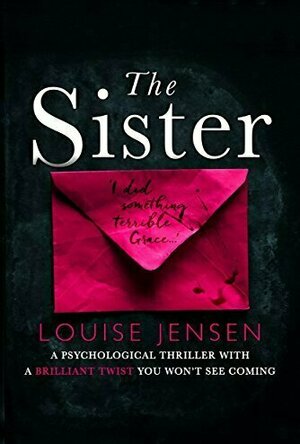
The Sister
Book
‘I did something terrible Grace. I hope you can forgive me…’ Grace hasn't been the same...
